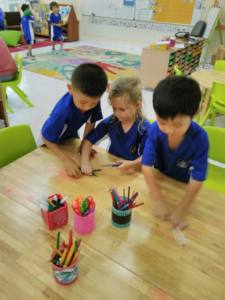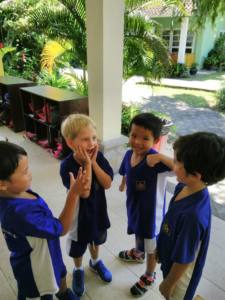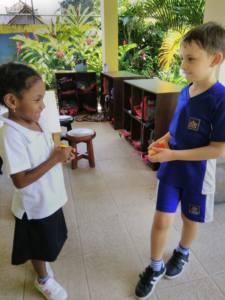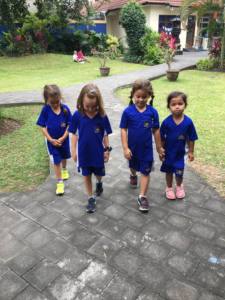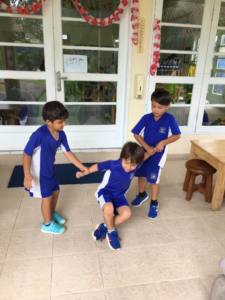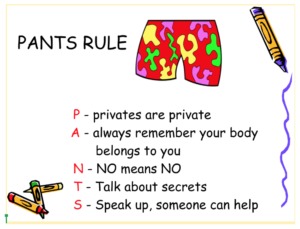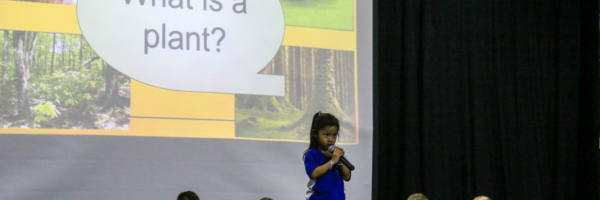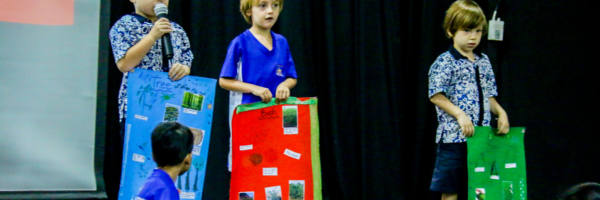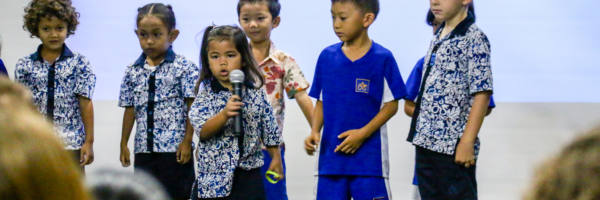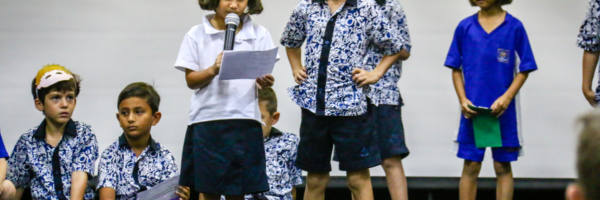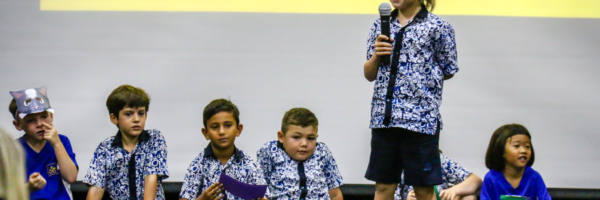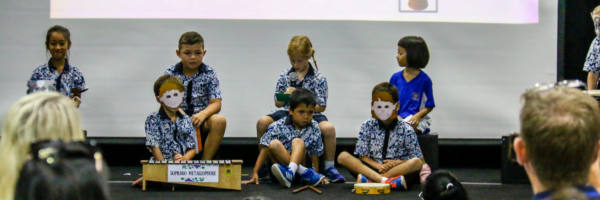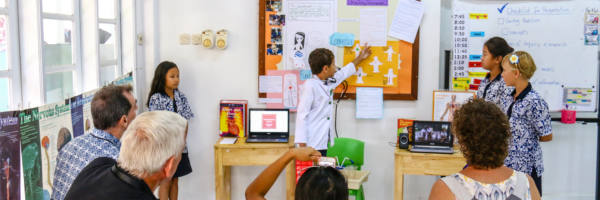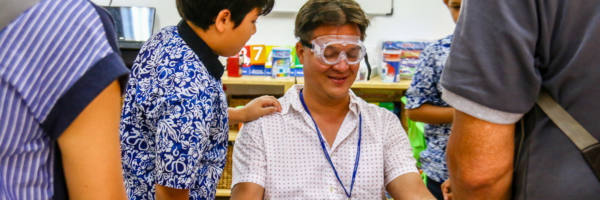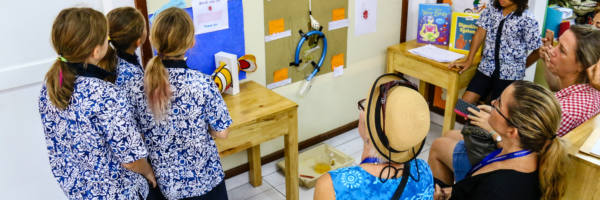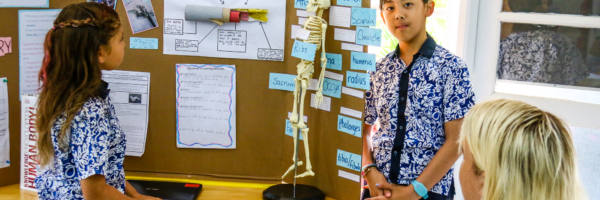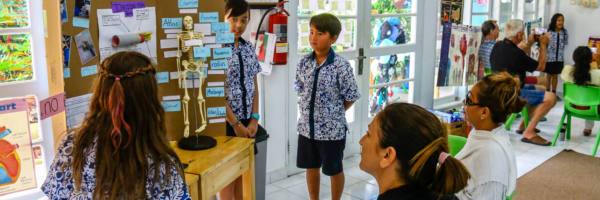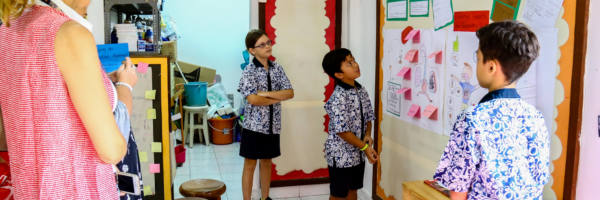Primary News, September 14th
There is a very positive energy to the Primary School with so much wonderful learning happening inside and outside the classroom across all areas of the curriculum. Our Under 6 – 8 and Under 9 – 10 Bali Schools Sports Association (BSSA) teams have enjoyed their training at school and their games against Sanur Independent School and Dyatmika School which have been hosted at Bali IS and Dyatmika. Last week our students participated in a whole school silent reading event and inquired into PYP Approaches to Learning Social Skills with a Literacy Day focus in assembly. This week our PS 3 & 4, Kindergarten and Grade 1 students hosted the first Share Assembly with parents and our Grade 4 students shared their body system inquiries with parents and other students.
In the next two weeks we will celebrate International Day, Grade 1 – 3 students will visit the Australian Independent School to watch their students perform Shrek Jr the Musical, Grade 3 students will visit Jenggala Ceramics Bali & Museum Pasifika, Grade 2- 4 students will host their Share Assembly with parents and Grade 5 students will go on their overnight camp to Sila’s Agrotourism Recreation & Education Park.
Please note that Three Way Conferences will take place on Thursday 4 October. Details about the conferences and bookings will be shared next week. This will run as a regular school day with primary students attending classes when they are not attending their conference with their parents and teacher.
Craft Materials & Old Electronics
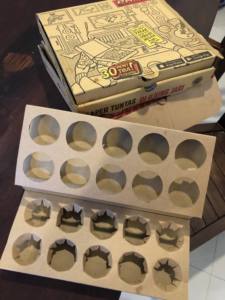 Our aim over the coming months is to set up a Maker Space, which will include a range of STEAM (Science Technology, Engineering, the Arts and Mathematics) inquiry opportunities for our students. Our aim is to use the Maker Space at lunch times, during the school day and for after school activities with the students as it grows.
Our aim over the coming months is to set up a Maker Space, which will include a range of STEAM (Science Technology, Engineering, the Arts and Mathematics) inquiry opportunities for our students. Our aim is to use the Maker Space at lunch times, during the school day and for after school activities with the students as it grows.
I am beginning the collection of materials for a Maker Space over the next few weeks and would ask anyone who can bring in or donate any of the following items to leave them in the big metal cage outside the Primary Principal Office or open the door and drop them into my office.
Craft Materials including Paper towel rolls, Toilet rolls, Cereal boxes, cardboard egg cartons, other cardboard boxes, plastic bottle tops, straws and other similar items.
Old electronic devices such as phones, laptops, desktop CPUs, monitors, tablets, headphones, CD players and the like.
Spare or unused sticky tape and dispensers, masking tape, scissors, craft knifes craft glue, glue guns screw drivers, long nosed pliers, tweezers and wire cutters.
#BaliISPYPAction
Action in the PYP
In the PYP, it is believed that education must extend beyond the intellectual to include not only socially responsible attitudes but also thoughtful and appropriate action. An explicit expectation of the PYP is that successful inquiry will lead to responsible action, initiated by the student as a result of the learning process.
This action will extend the student’s learning, or it may have a wider social impact, and will clearly look different within each age range. PYP schools can and should meet the challenge of offering all learners the opportunity and the power to choose to act; to decide on their actions; and to reflect on these actions in order to make a difference in and to the world.
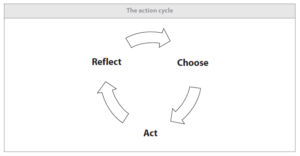
The problems inherent in advocating action are recognized, particularly the role of the teacher in creating opportunities that will lend themselves to the possibilities of student-initiated action. Action should be seen as a voluntary demonstration of a student’s empowerment in the context of the expectations laid down in the programme. Voluntary action must remain precisely this if we truly believe in the values we advocate.
In the PYP, it is believed that every student, every year, has the right and should have the opportunity to be involved in such action. This action may be taken by an individual student or by a group of students working collaboratively. In order to make the action component of the curriculum as powerful as possible in terms of student learning, the PYP advocates a cycle
The action component of the PYP can involve service in the widest sense of the word: service to fellow students, and to the larger community, both in and outside the school. Through such service, students are able to grow both personally and socially, developing skills such as cooperation, problem solving, conflict resolution, and creative and critical thinking. Moreover, these actions are ways in which the students exhibit their commitment to the attributes of the learner profile and to the attitudes that we seek to engender within the PYP classroom.
Effective action does not need to be grandiose. On the contrary, it begins at the most immediate and basic level: with the self; within the family; within the classroom, the hallways and the playground. Even very young children can have strong feelings about fairness and justice, and teachers can facilitate positive expressions of these opinions. Effective action can be a demonstration of a sense of responsibility and respect for self, others and the environment.
Effective action:
- should be modeled by the adults in the school community—the action in which schools may engage will be based on the needs of the school community and the local community
- should be voluntary and involve students in exercising their own initiative
- is best grounded in the students’ concrete experiences
- is most beneficial to the students when they are able to witness the outcomes
- usually begins in a small way and arises from genuine concern and commitment
- should include anticipation of consequences, and accepting of responsibility
- may require appropriate adult support in order to facilitate students’ efforts and to provide them with alternatives and choices.
Action as a result of the learning may not be witnessed by the teacher and often happens beyond the Classroom
Source. IB Making the PYP Happen. A curriculum framework for international primary education
I would like to open some communication channels between the home and the school so that students and parents can share with the school the forms of action being undertaken by the students tat home. This could be something as simple as a student turning off a tap so as not to waster water, a student asking to bring food scraps into school to feed our animals or doing some further reading at home to find out about something being learned at school. Parents and students are invited to email primaryprincipl@baliis.net to share details of student action. Alternatively, parents are invited to share details of student actions on Twitter using the hashtag #BaliISPYPAction
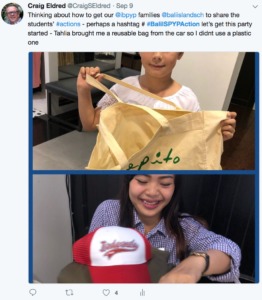
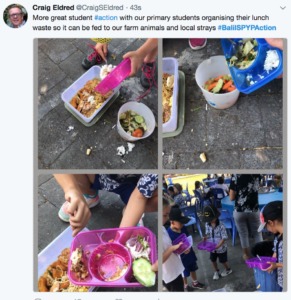
We will compile these actions along with ones that teachers and students have seen at school to create an Action Board for our whole school community to share.
Report from Grade 4 students
This was our first game of the season and we played SIS and Dyatmika. I was excited to see SIS being super competitive, it was a great game. I scored a goal and an assist.
The game yesterday taught me how to position myself to stop the oppositions passes.
It was fun and exciting. I felt really great when we made a comeback from 3-0 to win 3-5 – woohoo!
I was excited to see our competition and how good they were, so that I could improve my own skills for the next games. We scored at the start, but were unfortunate in the end.
I enjoyed watching the other girls play. It gave me ideas for my own practice.
I love travelling on the bus.
Report from Grade 5 students
It was a great opportunity to meet other students from different schools and play with them to develop our skills.
The boys had two very successful games and our team played very well. We learned that as a team we need to work more on our defence.
The girl’s team tried very hard, we had good defenders.


